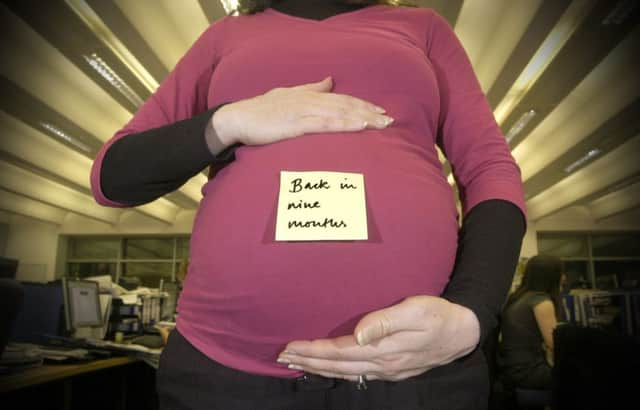Confusion remains over issue of salary sacrifice


In a recent decision (Peninsula Business Services Ltd v Donaldson), the Employment Appeal Tribunal decided that employers do not need to continue to pay salary sacrificed childcare vouchers during maternity leave. This runs contrary to common practice and current HMRC guidance, leaving both employers and employees with questions about the implications of the case.
Benefits during maternity and family leave
When a person goes on maternity, paternity, shared parental or adoption leave, they remain entitled to receive all their normal employment benefits, except remuneration. Instead of receiving normal pay, they may receive statutory maternity (or family leave) pay and sometimes enhanced contractual maternity (or family leave) pay for all or part of their leave.
Salary sacrifice
Advertisement
Hide AdAdvertisement
Hide AdSalary sacrifice schemes allow employers to offer benefits to employees in a tax-efficient way. The employee must give up their right to receive an element of their salary, in exchange for some other benefit (usually childcare vouchers or pension contributions).
There has long been ambiguity over whether benefits provided via salary sacrifice should be classed as remuneration which should cease during maternity leave, or a benefit which should continue.
Childcare vouchers
Until the recent decision, employers tended to follow HMRC guidance which said childcare vouchers, even if funded by salary sacrifice, were non-cash benefits and must therefore continue during maternity leave. The common understanding was that if the employer enhanced maternity pay, it could continue to deduct the sacrificed element of salary to fund childcare vouchers provided the employee’s pay did not drop below the rate of statutory maternity pay (SMP). When pay dropped to SMP or nil pay, employers needed to continue to provide the childcare vouchers at their cost.
In rejecting this approach, the Employment Appeal Tribunal decided the sacrificed element of pay is a diversion of salary, and is remuneration – so there was no legal requirement for employers to continue providing benefits funded by salary sacrifice (unless they had a separate contractual obligation to do so).
It was commented that it could not have been Parliament’s intention that businesses continue to provide such benefits when the employee was not able to contribute to them. For small businesses in particular, this could act as a deterrent against offering such schemes at all.
However, interestingly, the Employment Appeal Tribunal (EAT) made it clear it reached its decision “somewhat tentatively”. Commentators have already raised concerns that the relevant tax legislation was not sufficiently considered. The judgment should be treated with some caution, and it may be appealed.
Implications in practice
Employers should be clear that this decision is only relevant to childcare vouchers provided through salary sacrifice. Vouchers provided by an employer as a benefit in addition to normal salary must still be provided during maternity or other family leave.
Employers should also consider whether they have a policy governing salary sacrifice arrangements during family leave. If employees have a contractual right or clear expectation that childcare vouchers will continue during leave, this case will not be enough to relieve employers of their duties without first taking steps to amend their contracts.
Advertisement
Hide AdAdvertisement
Hide AdAs the government intends to change the childcare voucher scheme in 2018, some employers may decide to wait until the details of the new scheme are known before taking steps to change existing practices.
There has been speculation on whether this case will have implications for pension contributions made via salary sacrifice, but, as highlighted above, the decision could be appealed and so should be treated with caution.
• Katie Russell is a partner with Shepherd & Wedderburn
SEE ALSO